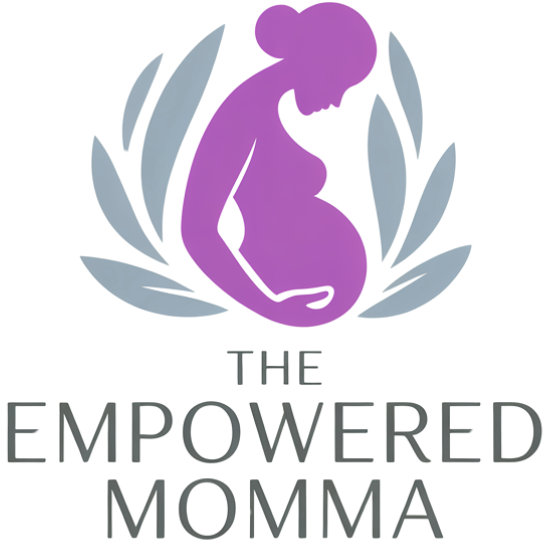Many expecting parents ask if cough drops are safe. In most cases, yes, they are fine to use during pregnancy. This can be a relief when a cough or sore throat makes a tough time feel worse. Still, a bit of guidance helps. Knowing which ingredients are helpful and which to limit can protect both your comfort and your baby&rsquos health. Your healthcare provider is the best source for advice just for you, especially for medicines and home remedies during pregnancy.

The aim when choosing a cough drop while pregnant is simple: calm your symptoms without adding risk. Read the active ingredients and choose simple formulas when you can. Many common ingredients are safe and soothing. Make choices that line up with medical guidance.
Which ingredients are considered safe in cough drops for pregnant people?
For cough or sore throat relief during pregnancy, menthol and honey are popular safe picks. Menthol comes from mint plants and gives a cooling feel in the throat. It can ease irritation and reduce the urge to cough. It also works as a mild numbing agent and cough suppressant.
Honey is another trusted option. It can calm throat irritation and has natural germ-fighting and anti-inflammatory effects. You can use it in lozenges or in warm tea. Other ingredients that may be used include benzocaine (a numbing agent) and dextromethorphan (a cough suppressant). Human data do not show a link between these ingredients and birth defects when used during pregnancy. Choose non-alcohol products if you pick something with dextromethorphan.
| Ingredient | Pregnancy safety | Notes |
|---|---|---|
| Menthol | Generally safe | Cools and soothes the throat; may irritate if overused |
| Honey | Safe | Soothes and coats the throat; use in lozenges or warm drinks |
| Benzocaine | Likely safe | Numbs throat pain; no human data showing birth defect risk |
| Dextromethorphan | Likely safe | Cough suppressant; pick alcohol-free products |
| Phenylephrine | Avoid | Oral form is not effective for congestion per FDA (2023) |
| Pseudoephedrine | Avoid | Possible blood flow concerns; risk may be higher in the first trimester |
| Sugar alcohols (xylitol, sorbitol) | Use sparingly | May cause diarrhea if taken in large amounts |
| Artificial sweeteners (e.g., aspartame) | Use sparingly | Check with your doctor if you have any restrictions |
What cough drop ingredients should pregnant women avoid?
Some ingredients are best avoided or used with great care:
- Phenylephrine and pseudoephedrine: These decongestants narrow blood vessels, which can reduce blood flow to the fetus. Some studies link first-trimester pseudoephedrine use with certain birth defects. The FDA also said in 2023 that oral phenylephrine does not work well for nasal congestion.
- Multi-symptom formulas: These may include extra drugs you do not need. Herbal mixes may cause allergies or stomach upset.
- High sugar content: If you have gestational diabetes, watch added sugars like cane sugar and corn syrup.
- Sugar-free drops in excess: Artificial sweeteners and sugar alcohols (xylitol, sorbitol) can cause diarrhea when overused.

Read labels closely, and ask your healthcare provider if you are unsure about a product.
How often can you use cough drops when pregnant?
Use cough drops in moderation. Follow the directions on the package. Do not exceed the stated dose, even with products that seem mild.
Too much menthol can irritate the mouth or throat. Too many sugar-free drops may lead to diarrhea. If you need cough drops often or for many days, talk with your healthcare provider. Ongoing or worsening symptoms may point to a problem that needs medical care. Your doctor can review your symptoms, confirm your choice is safe, and suggest other options to keep you and your baby safe.
Best cough drops for pregnancy: expert recommendations
When you have a cough during pregnancy, safe relief matters. Many products with a long track record can calm your throat and reduce coughing. Focus on proven ingredients and simple formulas that target one main symptom instead of multi-symptom blends.
Personal taste, flavor, and texture matter too. Knowing the brands and types that are often suggested can help you pick what works for you.
Cough drop brands commonly recommended in pregnancy
Several brands are often suggested due to safe ingredient lists and reliable relief. These usually rely on menthol and sometimes honey. Common choices include:
- Halls Menthol Cough Suppressant/Oral Anesthetic Plus Medicine Center
- Ricola Cough Suppressant Throat Drops
- Vicks Menthol Cough Suppressant/Oral Anesthetic Drops
Halls offers menthol-based drops that cool and calm an irritated throat. Ricola blends herbs and often includes menthol for soothing effects. Vicks menthol drops provide similar relief. These brands keep to ingredients that have been well reviewed for safety in pregnancy, making them steady picks when you feel sick.

Natural and sugar-free options safe for pregnancy
If you prefer simple or lower-sugar products, you have good choices. Honey lozenges or pure honey in warm tea can help due to honey’s soothing and germ-fighting effects.
For sugar-free drops, people with gestational diabetes should watch the sweeteners used. Limit cane sugar and corn syrup. Also be cautious with artificial sweeteners and sugar alcohols (aspartame, xylitol, sorbitol), since large amounts may upset your stomach. Read labels and choose simple formulas with few added ingredients, or use sugar-free drops in small amounts.
When to choose medicated versus non-medicated cough drops
Pick based on how strong your symptoms are:
- Non-medicated drops (honey, mild herbal blends): Good for a dry tickle or mild soreness; they lubricate and soothe.
- Medicated drops (menthol, dextromethorphan, benzocaine): Better for frequent, painful, or sleep-disrupting coughs. Menthol and benzocaine numb the throat; dextromethorphan helps quiet the cough reflex.
Choose products with ingredients that are known to be safe in pregnancy and follow the dose on the label. If symptoms are strong or do not improve, contact your healthcare provider for other treatments.
Natural and home remedies for cough relief in pregnancy
You can also try simple home care to ease cough and sore throat symptoms. These methods are gentle and can be used with safe over-the-counter products, or on their own.
- Drink plenty of fluids: water, warm tea, and broth thin mucus and moisten the throat.
- Tea with honey: warm liquid plus honey can calm a cough and coat the throat.
- Saltwater gargle: mix 1/4 to 1/2 teaspoon salt in 8 ounces of warm water; gargle as needed.
- Cold treats: ice chips or popsicles can lightly numb a sore throat.
- Humidifier or steam: add moisture to the air or breathe steam from a hot shower to ease stuffiness and dryness.
- Extra pillows at night: raise your head to reduce postnasal drip that can trigger nighttime coughs.

Are herbal and honey cough drops safe in pregnancy?
Honey is a solid choice and is often recommended for cough and sore throat relief during pregnancy. It soothes and offers natural germ-fighting benefits.
“Herbal” can mean many different plants. While common herbs in lozenges are likely low risk, long ingredient lists add more variables and may cause allergies or stomach upset. Some herbal supplements lack solid pregnancy safety data. Small amounts of propolis in throat sprays may be fine, and current data on echinacea do not show an increased risk of birth defects. But other ingredients like elderberry and eucalyptus have limited pregnancy data, so avoid using them as supplements beyond small food amounts. If you want to try a specific herbal product, ask your healthcare provider first.
When to contact your healthcare provider
Many cold and cough symptoms can be managed at home, but pregnancy calls for extra care. Knowing when to reach out can prevent problems. If you have questions about your symptoms or any product you’re using, contact your Women’s Care physician. They can give guidance that fits your needs and help keep you and your baby safe. Severe illness in a pregnant person can harm the fetus, so timely care matters.
What symptoms require medical attention during pregnancy?
Call your healthcare provider right away if you have any of the following:
- Trouble breathing or shortness of breath
- Fever over 102°F (38°C oral)
- A cough that does not go away, or green/yellow mucus
- Chest pain, especially if worse with coughing or deep breaths
- Cold or flu symptoms lasting more than 7-10 days and affecting daily life
- Signs of COVID-19 or flu exposure or illness
- Not able to keep food or liquids down for 24 hours (risk of dehydration)

Dealing with cough and cold symptoms during pregnancy calls for smart choices. Know which ingredients are safe, follow product directions, and reach out to your doctor if symptoms persist or worsen. Your healthcare provider can guide you through safe options so you can feel better while keeping your baby safe.

